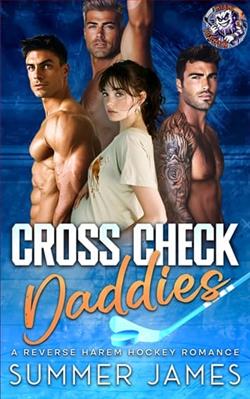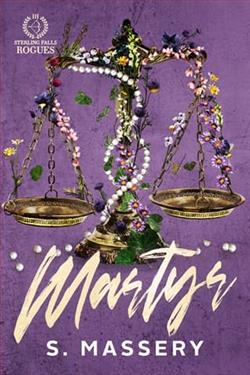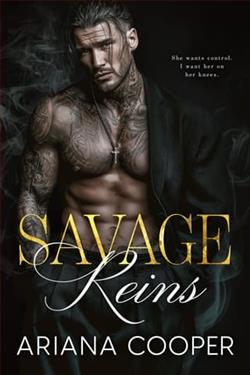Page 7 of No Kind of Hero
“Don’t know how a woman could do that. My wife, now, if she was still here, she’d have something to say about it. But I guess you probably said it all to yourself already.”
“Probably so.”
“Well, you’ll find some gal, I’m sure, wants to be a mom to Gracie, sweet little thing like she is. Got your house fixed up good now and all, business going all right. Plus you still got your hair, even.”
“Could be.” Evan couldn’t decide if that last part was a joke or not.
Elmer looked him over. Nothing wrong with his brain, even if eighty-five was receding in the rearview mirror. “Yeah. You don’t want to hear that yet. I’ll let you get going, then, and go in and read up on how the politicians have messed us up this time.”
Evan jogged away, took Gracie to the park, and put her on his lap and did the swing with her, which was her favorite. Gentle, that was all, but she still loved it. Plus, he’d read that swinging made kids smarter. Something to do with neural connections. He was the only dad there, because it was a weekday, but he was used to that by now. He let her play in the sandbox a while, too. Then they went by the hardware store and bought light bulbs and new batteries for the smoke detectors, and the woman at the checkout made a fuss over Gracie before Evan stuck their purchases in the basket of the stroller and headed out again.
So it wasn’t a tropical vacation. It still beat painting somebody’s office building in your respirator and goggles. He shoved the door of the store open, heard the bell tinkle behind him, and told his daughter, “Know what? I think we should go for ice cream.”
Probably Elmer’s fault. He’d mentioned ice-cream shops and got Evan thinking about Robinson’s and how good that sounded. “And I hear you saying that it’s eleven in the morning,” he told Gracie, “but we’re rebels. We ride to our own rules. You’ll have a bottle, I’ll have a chocolate shake, and we’ll be living large.”
That was why he was stuck in line at Robinson’s Ice Cream, though, when Beth Schaefer walked in and stood behind him.
If she didn’t get into town soon, Beth thought on Friday morning, she was going to become a hermit. She’d stay here in her parents’ guest house, growing steadily older, thinner, and grayer, until she turned into the crazy lady out at the lake with twenty-six cats.
Unfortunately, she didn’t even like cats much. She was thetypeof person who liked cats—the quiet sort who’d always rather read than go to a party, much to her mother’s chagrin—but except at work, she was insecure enough as it was. She didn’t need a pet she wasn’t even sure liked her back.
Those were some pretty cheerful thoughts. She was probably depressed. She’d thought she needed a break, some time away. No, she’dknownshe needed a break. She’d needed time to think.
Except that she hadn’t done any thinking. Instead, she’d hiked and run the trails around the lake every day until her thighs ached and her feet were sore, listening to Jane Austen audiobooks on her headphones because she was too restless to sit and read. So far this week, Elizabeth Bennett had snagged Mr. Darcy, and today, Captain Wentworth was about to be restored at last to Anne Eliot.
When Anne was standing at the table reading Captain Wentworth’s letter, Beth knew she absolutely had to change this up. She was coming down the trail from Forester Peak, the lupines covering the hillside in all their purple glory and tears streaming down her face, sobbing over a woman discovering that the man she’d wronged all those years ago wanted her back. Crying because Anne had never stopped loving the Captain and regretting him, and somehow, his feelings for her were as strong and steady as ever, and there would never be another woman for him. Never mind that the people in question were (a) fictional, and (b) would have been dead for two hundred years even if they’d been real.
When Henry, her parents’ Viszla, came tearing back up the trail and stuck his wet nose into her palm, she laughed, wiped her eyes with the back of her hand, and said huskily, “Next book had better be a thriller, don’t you think? I clearly can’t be trusted with romance, even of the Jane Austen variety.”Especiallyof the Jane Austen variety. Anne Eliot, her early bloom faded and with nothing but intelligence, a generous heart, and a gentle nature to recommend her, felt way too close for comfort, and Captain Wentworths were noticeably thin on the ground these days. Beth didn’t think nineteenth-century English sea captains with honorable natures and manly features hung around in the kind of see-and-be-seen Portland bars favored by aggressive young lawyers.
If she were going to cry about something, she should cry about her job and how much this leave would cost her. Except that she couldn’t bring herself to care. Anne Eliot moved her to tears. Kentworth, Docherty and Valentino, LLC, didn’t.
That was why she and Henry ended up going to town, though. They’d wander around a little, she’d check out the bookstore and have something to eat, and then she’d go to the grocery store. She needed to talk to actual human beings, even if it was just to say, “Cup of coffee and a turkey sandwich, please.” Work her way back up to social interaction.
Robinson’s had a new coat of paint, she noticed when she came out of the bookstore, thriller duly purchased. If she could focus enough to read print, that would be progress. Baby steps. The venerable ice-cream shop had a new sign, too, an oval thing hanging on chains, its robin’s-egg-blue lettering quaint and curlicued, ready for the wealthy tourists from the new resort.
“Ice cream,” she said to Henry, unfastening him from the parking meter where he’d been tied. “Doesn’t that sound good?’
“Excuse me?” a woman getting out of a Prius next to her asked.
“Nothing,” Beth said. “Just talking to the dog.” And then felt like an even bigger idiot. She took Henry’s leash and headed across the street, jaywalking like a lawbreaker, and put Henry in the far corner of Robinson’s patio beside a jogging stroller, where he could lie in the shade of the weeping willows that hung over the creek. A mother mallard was leading a vee of fluffball babies downstream, each of the babies creating its own tiny wake. This was definitely a good idea, she didnottell Henry. Ice cream and baby ducks? That would cheer up the most morose heart.
She went into the store, realized her earbuds were still in her ears, which meant she’d probably beenyellingabout ice cream at Henry in front of the Prius woman, and yanked them out, stuffing the cord down the front of her exercise capris. She should probably have showered and changed before she’d come to town, not to mention putting on some makeup, but she hadn’t been able to summon the energy.
All of that, though, was why she didn’t notice Evan O’Donnell until she’d been standing behind him for twenty seconds. Until two teenage girls came in and got in line behind her, talking too loudly, and Evan turned to see.
He didn’t say anything to her. In fact, he didn’t react at all. He just looked at her, totally expressionless, one of his big hands absently removing his daughter’s tiny exploring fingers from his chin. The baby smiled at Beth, though, and Beth couldn’t help smiling back. She was just too cute. “You guys are having ice cream too, huh?” she asked.
“No,” Evan said. “We’re here for the hot dogs.”
“Oh. Right.” She knew she was flushing. What a stupid thing to say. And why didn’t the line move? The two women at the front seemed to be taste-testing every one of the twelve varieties in the freezer chest. She should leave, but she didn’t know how to leave without looking pathetic, and she couldn’t stand to be pathetic again with him.
Professional,she thought.Court face.And couldn’t summon it.
Evan’s expression shifted. To what, she wasn’t sure. “That was nasty,” he said. “Sorry.”
“That’s OK,” she managed to say.
“No, it’s not.”















